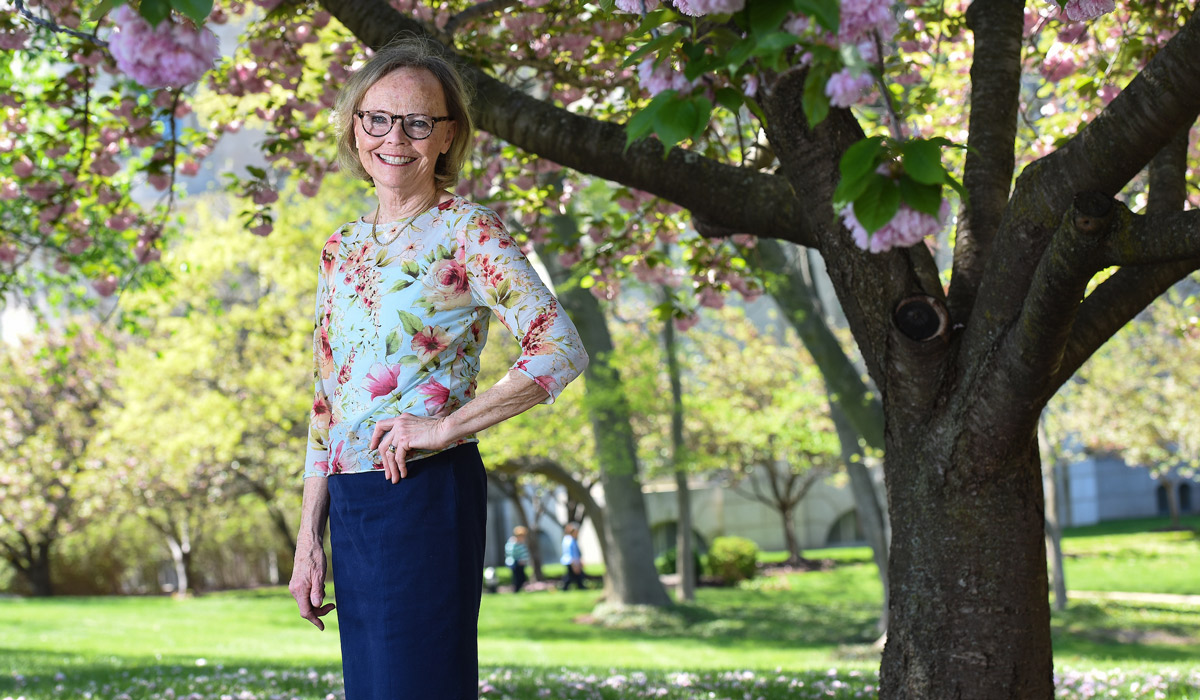

Elizabeth Hawkins-Walsh’s interest in children’s social and emotional health has been a constant theme since her undergraduate nursing school studies, which she peppered with courses in psychology.
Hawkins-Walsh, Certified Pediatric Nurse Practitioner (CPNP) and Ordinary Professor of Practice and Assistant Dean for Master's Programs and Community Outreach in the School of Nursing, has been at the forefront in driving innovations to bring accessible health care to children who otherwise might not receive it.
A leader in creating more opportunities and recognition for Pediatric Nurse Practitioners as pediatric primary care providers, Hawkins-Walsh has focused her efforts on underserved community settings where children may not be receiving quality primary care.
For two decades, Hawkins-Walsh has directed a Catholic University partnership with Montgomery County, Maryland’s Department of Health and Human Services to deliver needed primary health care services through school-based health clinics — the latest health care model. When the clinics began, there were few pediatricians in the County who accepted Medicaid. The school system had seen huge increases in immigrant children and others with little or no access to health care.
“It’s very rewarding to be a part of positive change in children’s healthcare.”
In response to the changing population needs, the county opened primary care clinics in two elementary schools located in high-need areas in concert with the Catholic University School of Nursing led by Hawkins-Walsh and partners at Children’s Medical Health Systems. The partnership has expanded as needs have burgeoned; the county has school-based health clinics in 13 schools today.
Catholic University is the lead agency in operating clinics at the four high schools in the Montgomery County partnership. To meet the needs, Hawkins-Walsh hired four NPs to work in the schools 28 hours per week providing comprehensive primary healthcare services. The NPs aren’t just employees; they’re also University clinical faculty. The school-based clinics serve as clinical practice sites for University nurse practitioner students.
“Our students have the opportunity to participate in this model that brings health care directly to adolescents and their families,” says Hawkins-Walsh.
Hawkins-Walsh’s leadership in national nursing organizations is also helping to pave the way in changing how we think about pediatric primary care. Improving children’s mental as well as physical health begins with building relationships with families and their communities. Helping graduate nurse practitioner students learn to see their patients through this lens is Hawkins-Walsh’s raison d’etre.
“Students are quick to learn how to diagnose and treat a sore throat or the flu. But children have emotional and mental health care needs that aren’t being recognized early enough. Adverse childhood events, such as the impact of impoverished families, violence, parent drug abuse, physical and emotional abuse — all impact children’s health and ability to learn. Families often don’t know how or can’t access resources in a rapidly changing health care environment which hasn’t focused on providing accessible and preventive services for children’s emotional health,” says Hawkins-Walsh.
Schools are the perfect place to conduct pediatric primary health care services, says Hawkins-Walsh. Nurse Practitioners, in partnership with teachers and staff, understand and have the opportunity to impact many of the social and emotional determinants of both mental and physical health — how children and adolescents are interacting with their peers, their attendance, academic progress, and even the food they eat from the cafeteria or find in vending machines.
The tide is turning. Nurse Practitioners are using new screening tools that focus on mental and emotional health. Screening for depression is now universally recommended for all adolescents.
Hawkins-Walsh says all primary care providers — both MDs and NPs — need more training in mental health. The nursing profession has recently created a curriculum strand and certifying exam for a new PNP option: primary care mental health specialist.
“It’s very rewarding to be a part of positive change in children’s healthcare,” says Hawkins-Walsh.